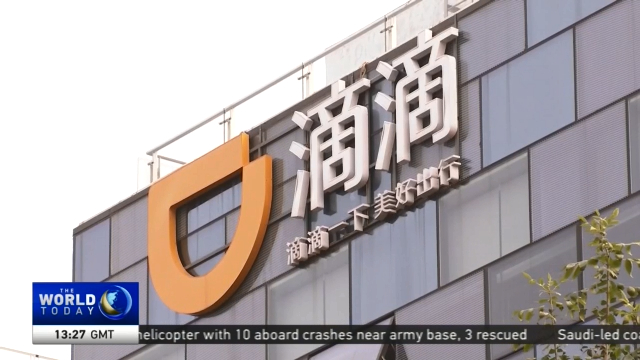
21:45, 02-Sep-2018
Didi Passenger Murder: Supervision needed for car-hailing industry
Updated
21:27, 05-Sep-2018
02:04

The rape and murder of a ride-sharing passenger in China continues to make headlines. It's exposed concerns about the company - DiDi - with the public demanding an overhaul. David Deen has more.
The recent murder of a passenger by a Didi hitch driver revealed an urgent need for supervision over the industry. The Chinese government has already suspended the service. Yet, in its three years of operations, there have been a few troubling incidents among the billions of trips made. This calls into question: should ride-sharing remain as a business?
WU JUN, ASSOCIATE PROFESSOR INSTITUTE OF LAW, CHINESE ACADEMY OF SOCIAL SCIENCES "Traditional hitchhiking does not involve money, and people are aware of the social function and will be cautious. But with Didi, the platform and payment are involved, and it dilutes our traditional wariness."
WEI DONG, CEO SHOUQI YUECHE CAR-HAILING PLATFORM "There is nothing wrong with hitch ride-sharing itself. If I need to go out myself and only take passengers en route, it's fine. But if you circle around to take passengers, then it is a for-profit action, for money or trying to make more friends. It becomes a business."
Further complicating the situation is the social element to Didi's hitch service. Passengers see it more as a financial transaction, seeking lower prices. While drivers may do it to make friends, invading the passenger's private space.
WU JUN, ASSOCIATE PROFESSOR INSTITUTE OF LAW, CHINESE ACADEMY OF SOCIAL SCIENCES "We used to enjoy a more enclosed, larger private space. Now the internet is compressing it and forcing it to open to more people. It may be convenient, but our traditional needs for safety and privacy are still there."
Companies have a responsibility to safeguard passengers' safety. Perhaps Didi is just the latest example where technology has grown beyond society's expectations. But if we're ready to enjoy all technology's positives, are we taking measures to prevent - or at best limit - the negatives? David Deen, CGTN, Beijing.

SITEMAP
Copyright © 2018 CGTN. Beijing ICP prepared NO.16065310-3
Copyright © 2018 CGTN. Beijing ICP prepared NO.16065310-3